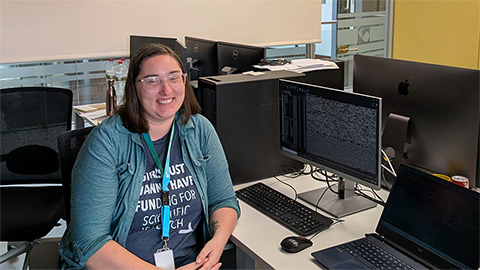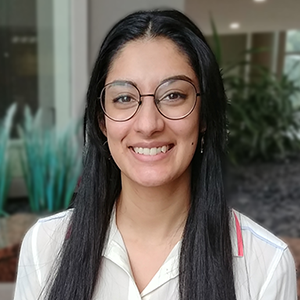What we’re asking for — on your behalf
The American Society for Biochemistry and Molecular Biology’s Public Affairs Advisory Committee and public affairs office advocate for robust funding and policies that provide flexibility to scientists, ensure the sustainability of the American research enterprise, and support scientists from all backgrounds and at all institutions.
Here’s what we’ve been up to. (You can read all of our position statements and letters at asbmb.org/advocacy.)
Our NIH budget recommendations
Sustained increases to the National Institutes of Health’s budget are essential. We provided written testimony to be included at a hearing about the federal budget for fiscal year 2023 by the U.S. House Committee on Labor, Health and Human Services, Education, and Related Agencies.We requested:
- $49.05 billion for the NIH base budget.
- $3.25 billion for the National Institute for General Medicines within the NIH.
- $430.5 million for the NIH to direct specifically to the Institutional Development Awards program.
Virtual Capitol Hill Day: A real success
Members of the PAAC and others met with their representatives and senators on May 11. Participants urged policymakers to:
- Separate funding for the Advanced Research Projects Agency for Health, or ARPA-H, from funding for the NIH.
- Pass pro-science provisions in the competitiveness bills moving through Congress.
- Support a “Dear Colleague” letter (a document used by members of Congress to encourage their colleagues to support specific issues) to increase funding for STEM training programs at the Department of Energy, the National Science Foundation and the NIGMS.
Twenty-six participants located in 19 states had 59 meetings.
Compelling the NIH to deal with harassment
We sent a letter on May 25 to U.S. Sens. Patty Murray, D-Wash., and Roy Blunt, R-Miss., and Reps. Rosa DeLauro, D-Conn., and Tom Cole, R-Okla., requesting that language be included in appropriations legislation requiring the NIH to create a strategic plan and timeline to address workplace toxicity and harassment at the agency’s intramural campus.
Pro-science provisions are now law
The CHIPS and Science Act, signed into law Aug. 9, is the outcome of reconciling two bills in Congress: the America COMPETES Act of 2022, which passed the U.S. House in February, and the U.S. Innovation and Competition Act of 2021, which passed the Senate in June 2021. The CHIPS and Science Act outlines historic investments in scientific research and development to keep the U.S. a global leader in scientific discovery. There are multiple provisions that will modernize scientific infrastructure, address systemic barriers faced by the next generation of scientists, and combat sexual harassment in science, technology, engineering and mathematics. The ASBMB continues to advocate to ensure that funding promised in the bill are ultimately appropriated.
Enjoy reading ASBMB Today?
Become a member to receive the print edition four times a year and the digital edition monthly.
Learn moreGet the latest from ASBMB Today
Enter your email address, and we’ll send you a weekly email with recent articles, interviews and more.
Latest in Opinions
Opinions highlights or most popular articles

Women’s health cannot leave rare diseases behind
A physician living with lymphangioleiomyomatosis and a basic scientist explain why patient-driven, trial-ready research is essential to turning momentum into meaningful progress.

Making my spicy brain work for me
Researcher Reid Blanchett reflects on her journey navigating mental health struggles through graduate school. She found a new path in bioinformatics, proving that science can be flexible, forgiving and full of second chances.

The tortoise wins: How slowing down saved my Ph.D.
Graduate student Amy Bounds reflects on how slowing down in the lab not only improved her relationship with work but also made her a more productive scientist.

How pediatric cataracts shaped my scientific journey
Undergraduate student Grace Jones shares how she transformed her childhood cataract diagnosis into a scientific purpose. She explores how biochemistry can bring a clearer vision to others, and how personal history can shape discovery.

Debugging my code and teaching with ChatGPT
AI tools like ChatGPT have changed the way an assistant professor teaches and does research. But, he asserts that real growth still comes from struggle, and educators must help students use AI wisely — as scaffolds, not shortcuts.

AI in the lab: The power of smarter questions
An assistant professor discusses AI's evolution from a buzzword to a trusted research partner. It helps streamline reviews, troubleshoot code, save time and spark ideas, but its success relies on combining AI with expertise and critical thinking.

